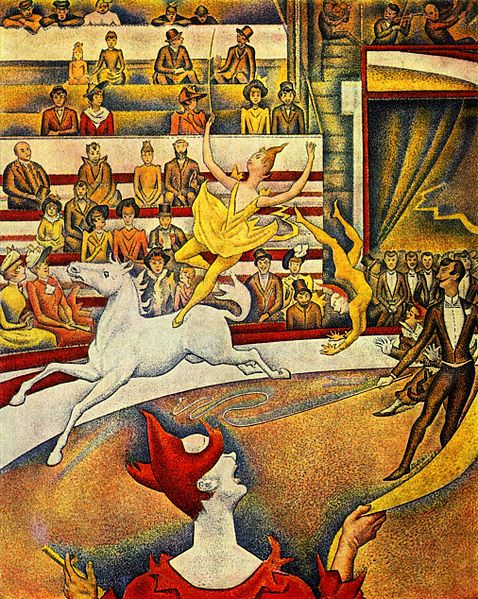Adobe
Architecture
Blue Danube
San Juan River
Luke 11:2
"And he said unto them, When ye pray, say, Our Father which art in
heaven, Hallowed be thy name. Thy kingdom come. Thy will be done, as in
heaven, so in earth."
casa típica de adobe
La casa de adobe representada en muchas obras de Fausto Pacheco es un símbolo dentro de la pintura de paisaje costarricense.
Café
Chess: "Adobe" "Architecture" "Blue Danube" "San Juan River"
Wikipedia
Ars Poetica is a term meaning "The Art of Poetry" or "On the Nature of Poetry". Early examples of Artes Poeticae by
Aristotle and
Horace have survived and many other poems bear the same name, perhaps the most well known being that of
Archibald MacLeish.
Horace
Horace's
Ars Poetica (also known as "The Art of Poetry",
Epistula Ad Pisones, or
Letters to Piso), published c. 18 BC, was a treatise on poetics. It was first translated into English by
Thomas Drant. Three quotations in particular are associated with the work:
- "in medias res",
or "into the middle of things". This describes a popular narrative
technique that appears frequently in ancient epics and remains popular
- "bonus dormitat Homerus" or "good Homer nods"; an indication that even the most skilled poet can make continuity errors
- "ut pictura poesis",
or "as is painting so is poetry", by which Horace meant that poetry, in
its widest sense meaning "imaginative texts", merits the same careful
interpretation that was in his day reserved for painting.
The latter two phrases occur one after the other near the end of the treatise.
The work is also key for its discussion of the principle of
decorum, the use of appropriate vocabulary and diction in each style of writing, and for Horace's criticisms of
purple prose.
In verse 191, Horace warns against
deus ex machina, the practice of resolving a convoluted plot by having an
Olympian god
appear and set things right). Horace writes "Nec deus intersit, nisi
dignus vindice nodus": "That a god not intervene, unless a knot show up
that be worthy of such an untangler".
Archibald MacLeish
The best known poem by
Archibald MacLeish
(1892–1982), published in 1926, took its title and subject from
Horace's work. His poem "Ars Poetica" contains the line "A poem should
not mean/but be", which was a classic statement of the modernist
aesthetic. The original manuscript of the poem is in the collections of the
Library of Congress.
Ars Poetica
|
|
|
by Archibald MacLeish |
|
A poem should be palpable and mute
As a globed fruit,
Dumb
As old medallions to the thumb,
Silent as the sleeve-worn stone
Of casement ledges where the moss has grown—
A poem should be wordless
As the flight of birds.
*
A poem should be motionless in time
As the moon climbs,
Leaving, as the moon releases
Twig by twig the night-entangled trees,
Leaving, as the moon behind the winter leaves,
Memory by memory the mind—
A poem should be motionless in time
As the moon climbs.
*
A poem should be equal to:
Not true.
For all the history of grief
An empty doorway and a maple leaf.
For love
The leaning grasses and two lights above the sea—
A poem should not mean
But be.
Ars Poetica (trans.Leon Golden)
Psalm 96
King James Version (KJV)
96 O sing unto the Lord a new song: sing unto the Lord, all the earth.
2 Sing unto the Lord, bless his name; shew forth his salvation from day to day.
3 Declare his glory among the heathen, his wonders among all people.
4 For the Lord is great, and greatly to be praised: he is to be feared above all gods.
5 For all the gods of the nations are idols: but the Lord made the heavens.
6 Honour and majesty are before him: strength and beauty are in his sanctuary.
7 Give unto the Lord, O ye kindreds of the people, give unto the Lord glory and strength.
8 Give unto the Lord the glory due unto his name: bring an offering, and come into his courts.
9 O worship the Lord in the beauty of holiness: fear before him, all the earth.
10 Say among the heathen that the Lord reigneth: the world also shall be established that it shall not be moved: he shall judge the people righteously.
11 Let the heavens rejoice, and let the earth be glad; let the sea roar, and the fulness thereof.
12 Let the field be joyful, and all that is therein: then shall all the trees of the wood rejoice
13 Before the Lord: for he cometh, for he cometh to judge the earth: he shall judge the world with righteousness, and the people with his truth.
|


















